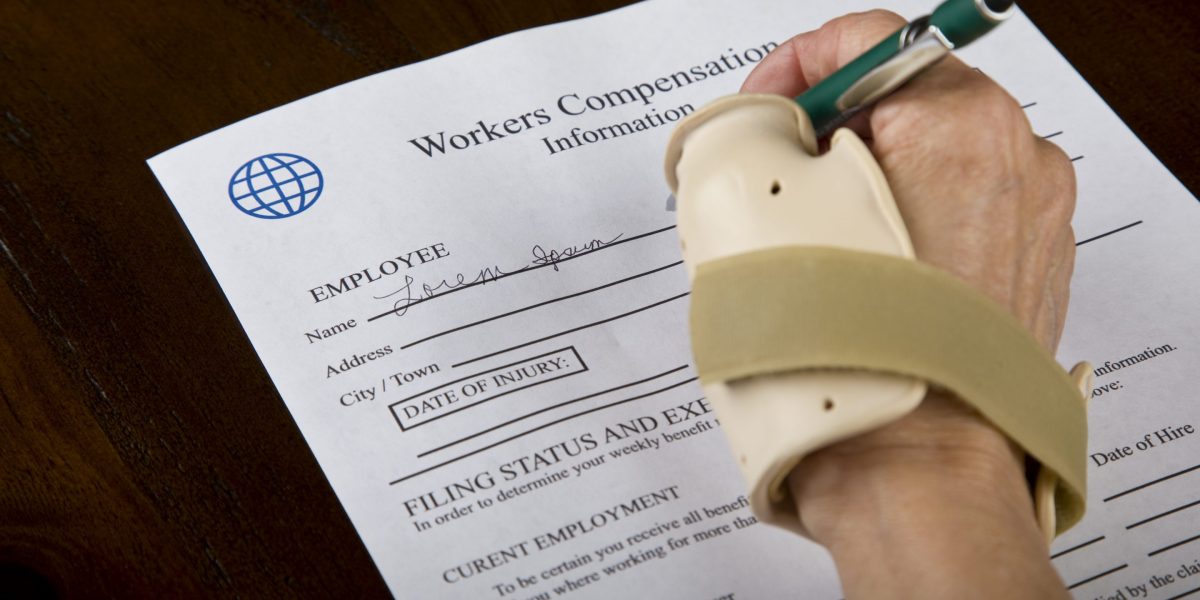This post was originally published on this site
https://fortune.com/img-assets/wp-content/uploads/2024/03/workers-comp-getty-e1711551376911.jpg?w=2048
Workers’ compensation is an insurance policy required by all states other than Texas for companies with employees. Each state has its own rules as to how many employees the company must have before it must get insurance to comply with state law, though many states make it a requirement with as little as one employee. Even if your state doesn’t require workers’ compensation for your company, you should consider getting a policy, especially if your workers are at risk of injury.
Workers’ compensation pays for the medical bills, rehabilitation, and lost wages of employees who are hurt on the job. If you don’t have insurance, you are on the hook for the cost of all of this while the employee is injured. This article goes into detail about what workers’ compensation is and what you need to know about it.
What is Workers’ Compensation
A workers’ compensation policy is for business owners who have employees. In most states, it is required by law. It covers injuries to those performing their work tasks. The benefits it provides include:
- Medical treatment
- Wage replacement
- Rehabilitation
- Vocational training, if necessary
The policy is employer-based, meaning that the employer must pay for it and cannot deduct an employee’s paycheck to pay for it.
How does Workers’ Compensation work?
A workers’ compensation policy is an insurance policy, so there must be a claim for the issue to be processed. When an injury occurs, the employer must take swift action to comply with state laws. According to workers’ compensation attorney, Robert Aguilar Jr., “Employers must investigate a claim and get medical attention for the injured worker immediately.” Delays could create penalties for employers by the state labor board. The goal is “to try to get to Maximum Medical Improvement (MMI) so that the employee can get back to work ASAP,” Aguilar said.
Getting the employee back to work as soon as possible helps keep insurance costs down, and can support employee morale after an injury. In addition to getting medical attention, Aguioar says that the insurance company will also “Investigate the compensability of the claim” to see how much is owed to the injured worker. These are critical steps in settling a workers’ compensation claim.
How much does Workers’ Compensation cost?
According to The Hartford, the average cost of a policy with a cap of less than $300,000 annually is $81 per month. This price depends on your industry, the type of work being done, your payroll, and your claims history. The higher the risk, the more your policy will cost.
The equation that calculates the rate is:
Workers’ class code(Claims Experience Modifier)(Payroll/$100) = Premium
The insurance company has a rate per work class for each type of job class. The claims experience modifier is a factor that affects the rate based on claims history. The more claims you have, the higher this factor will be. Then, you multiply the product of those two by the payroll, which is divided by $100. The higher your payroll, the higher your premium will be.
Workers’ compensation policy that covers up to a million or more in damages will cost more than a policy covering up to $300,000 in annual claims. “If there is a cap on coverage, the company is still liable to pay out of pocket,” according to human resource consultant, Matthew W. Burr of Burr Consulting.
Employers can keep costs down by having safety programs in place that help reduce injuries. Employers should discuss with their insurance carrier what types of safety programs will help them get a discount on the policy. Reducing claims is the number one way to reduce policy prices. Employers should also work with insurance carriers to report fraud. Fraud is rampant with workers’ compensation and raises prices. If employers can reduce fraud, they can help reduce the overall costs of policies.
Who pays for Workers’ Compensation?
Employers are legally responsible for acquiring and paying for a workers’ compensation policy for their employees. This is not a benefit that the employees get that is paid partially out of paycheck deductions. Employers must bear the cost entirely.
How Workers’ Compensation Protects Employers
Because workers’ compensation insurance is required by law, having a policy will prevent a business from being penalized by the state for not having it. The fines vary by state but usually involve a per-employee per-day rate. If the employer is found to not have insurance, this penalty is assessed until an active policy is put in place.
In addition to fines, having a policy uniquely protects employers. Workers’ compensation law says that employees cannot sue an employer if they accept the funds from a workers’ compensation claim.
Independent Contractor Exception
In most states, workers’ compensation is designed to cover employees who get paid via a W2 form. Independent contractors are not considered employees and are paid via a 1099 form. Workers’ compensation does not cover the independent contractor. Employers are encouraged to ask independent contractors for proof of insurance before they work to prove that they have adequate coverage on their own and will not attempt to make a claim against the employer, which would be denied.
Small business owners should shop around for the health insurance and business insurance policies to find the best rates and coverage.
The takeaway
Workers’ compensation is an important insurance policy for business owners who have employees. Without it, they can be sued for negligence and left on the hook for all medical expenses and lost wages. Employers should investigate claims to understand how employees get hurt and how to prevent fraud. This helps keep the costs of insurance down. Be sure to shop for the best rate for your policy, as every insurance carrier rates policies differently.






